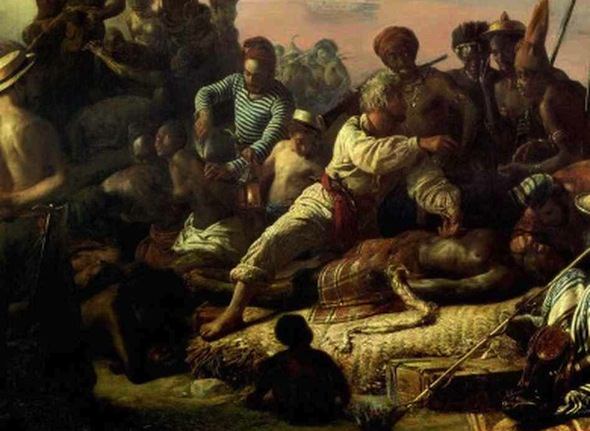Melville, Capitalism and Slavery
A new history of the events behind Herman Melville's 1855 novella "Benito Cereno" takes up the question of how slavery shaped the "psychic and imaginative" dimensions of contemporary capitalism, rather than merely the "social or financial" aspects.
A new history of the events behind Herman Melville’s 1855 novella “Benito Cereno” takes up the question of how slavery shaped the “psychic and imaginative” dimensions of contemporary capitalism, rather than merely the “social or financial” aspects.
The book is New York University history professor Greg Grandin’s “The Empire of Necessity: Slavery, Freedom and Deception in the New World.” In an interview published at Jacobin, Grandin sketches the contours of his thinking with Alex Gourevitch, an assistant professor of political science at Brown University and coeditor of The Current Moment:
Capitalism is, among other things, a massive process of ego formation, the creation of modern selves, the illusion of individual autonomy, the cultivation of distinction and preference, the idea that individuals had their own moral conscience, based on individual reason and virtue. The wealth created by slavery generalized these ideals, allowing more and more people, mostly men, to imagine themselves as autonomous and integral beings, with inherent rights and self-interests not subject to the jurisdiction of others. Slavery was central to this process not just for the wealth the system created but because slaves were physical and emotional examples of what free men were not.
But there is more. That process of individuation creates a schism between inner and outer, in which self-interest, self-cultivation, and personal moral authority drive a wedge between seeming and being. Hence you have the emergence of metaphysicians like Melville, Emerson, and of course Marx, along with others, trying to figure out the relationship between depth and surface.
What I try to do in the book is demonstrate the centrality of slavery to this process, the way “free trade in blacks” takes slavery’s foundational deception, its original deceit as captured in the con the West Africans were able to play on Amasa Delano, and acts as a force multiplier. Capitalism disperses that deception into every aspect of modern life.
Read more here.
— Posted by Alexander Reed Kelly.
Your support matters…Independent journalism is under threat and overshadowed by heavily funded mainstream media.
You can help level the playing field. Become a member.
Your tax-deductible contribution keeps us digging beneath the headlines to give you thought-provoking, investigative reporting and analysis that unearths what's really happening- without compromise.
Give today to support our courageous, independent journalists.






You need to be a supporter to comment.
There are currently no responses to this article.
Be the first to respond.